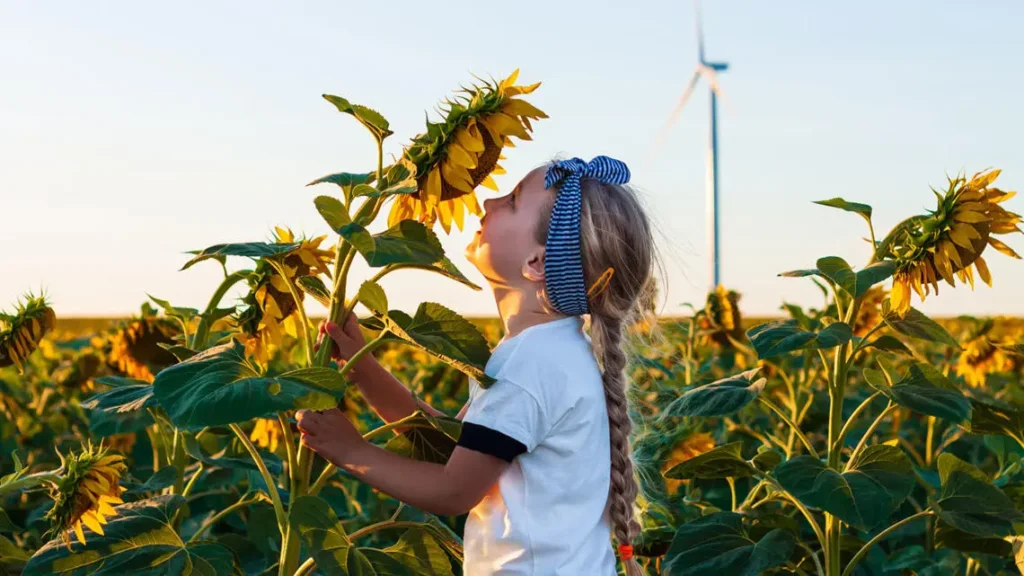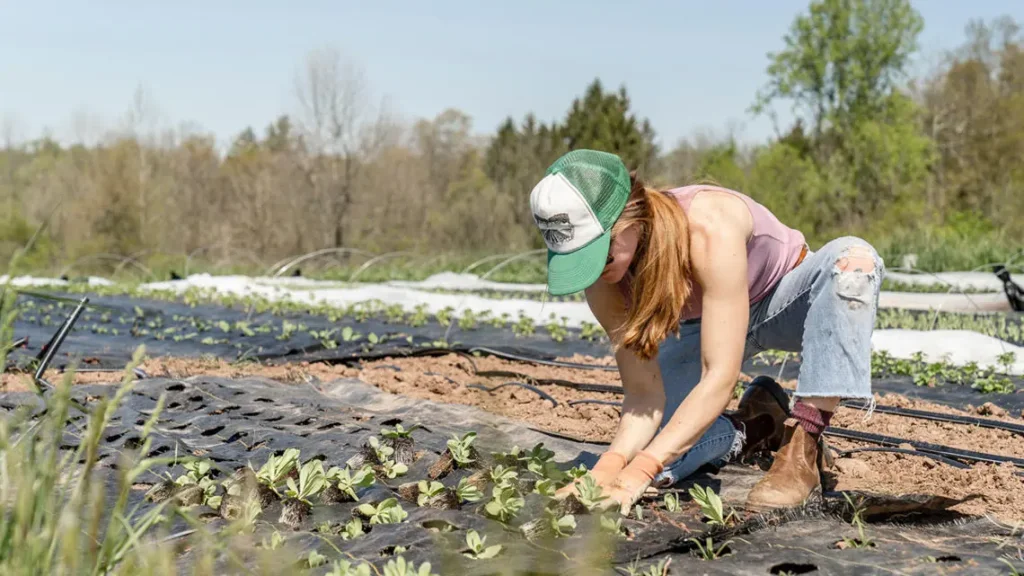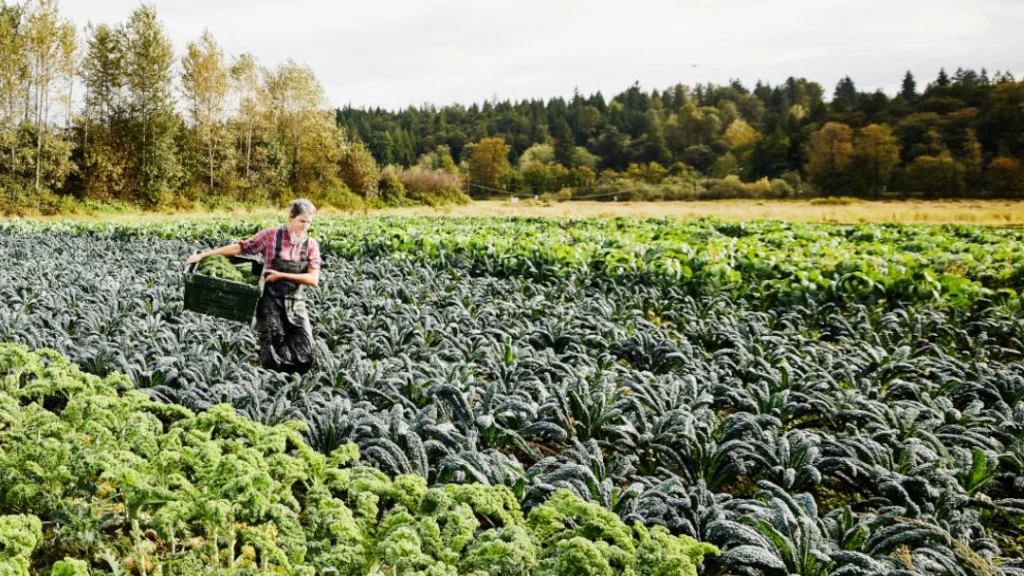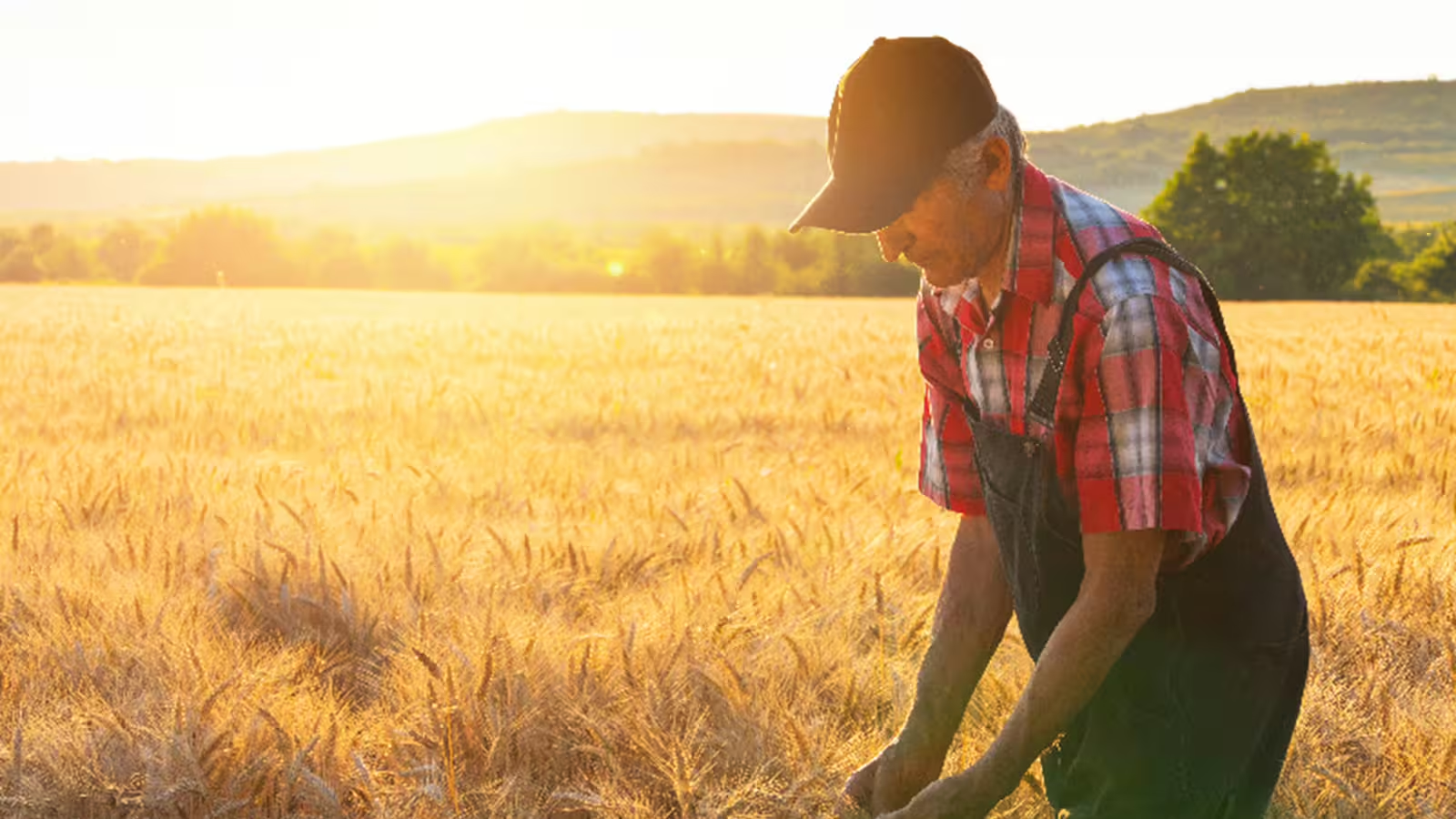5-Year Progress Report: Global Regenerative Agriculture Coalition Reaches Major Milestone of $3.6 Billion Invested, 300,000 Farmers Enrolled in Programs; 12.5 Million Hectare Regenerative Agriculture Footprint by 2030, with 3.9 Million Already Impacted
NEW YORK CITY, NY – September 19, 2024: The One Planet Business for Biodiversity (OP2B) coalition, one of the first private sector regenerative agriculture initiatives, convened by the World Business Council for Sustainable Development (WBCSD), reached a major impact milestones as it celebrates its five-year anniversary in September. Comprising of 26 corporate members with a collective market value of US $893 billion, OP2B has worked since its launch in 2019 to incentivize regenerative agriculture, a holistic approach to transform agricultural models, taking environmental and socioeconomic dimensions into account.
Regenerative agriculture is absolutely critical to transforming the food system. We must put farmers at the center of everything we do, adapting to the diverse realities of the geographies where we operate, while embracing technology and fostering innovative public-private mechanisms to accelerate the change. In doing so, we are creating a model which is actually more economically sustainable for the farmers.
- Antoine de Saint-Affrique, Danone CEO and OP2B Co-Chair
Collaboration is key to transforming our agricultural systems. Regenerative agriculture offers a solution to the growing challenges farmers and businesses face, but we need coordinated action across the value chain to make it a reality. At OP2B, we are focused on lifting the barriers to accelerate the transition to regenerative agriculture. This is the path for a regenerative and equitable agricultural system producing quality raw material and nutritious food for all.
– Peter Bakker, President and CEO, World Business Council for Sustainable Development and OP2B Co-Chair
With only 5 harvests left until 2030, there is an urgent need to accelerate the scale-up from pilots to large-scale landscapes transformations to stay within planetary boundaries. By collectively investing in regenerative agriculture, we can contribute to a net-zero, climate-resilient, nature positive and equitable agricultural system. We call upon financial actors, businesses and policymakers to unite in supporting farmers to transition to regenerative agricultural practices.
– Stefania Avanzini, Director OP2B
The five-year progress report released today, “OP2B Five-Year Report: Demonstrating progress on regenerative agriculture,” examines efforts by 19 value chain actors of the 26 OP2B members. According to the report, investments in transition finance for regenerative agriculture totaled US $3.6 billion between 2019 and 2023. The coalition aims to impact over 12 million hectares of land, equivalent to over 29 million acres, by 2030.
The transition to regenerative agriculture will require continued partnership and investment across the value chain to deliver impact at scale and speed to future proof our global food systems. That’s why we are proud to be founding members of OP2B which enables the acceleration of collaboration across industries to drive change and ultimately support farming partners on this journey to greater resilience.
- Max Koeune, CEO of McCain Foods and OP2B board member
With the increasing frequency of extreme weather events (such as droughts, flooding and extreme heat), combined with the immense loss of biodiversity due to agriculture over the past several decades, regenerative farming practices can be a powerful tool for farmers to adapt to a changing climate and increase profitability. Regenerative farming holds a positive business case for farmers, increasing farm profitability and the resilience of farming communities. It can restore degraded agricultural soils and positively impact climate, biodiversity and water.
It is crucial that food and beverage companies focus on collaborative action with farmers to help regenerative agricultural practices become the norm around the world. We need to help standardize, simplify and de-risk this transition for farmers and build resiliency across all our supply chains. At Diageo, we see OP2B as a key partner in driving more effective and efficient scaling of regenerative agriculture.
- Ewan Andrew, President, Global Supply Chain & Procurement and Chief Sustainability Officer (CSO), Diageo
I’m seeing firsthand the opportunities to use regenerative agriculture practices to be more profitable and resilient. We’ve shown the world that not only is regenerative agriculture better for ecosystem management and resiliency in a changing climate, but it actually is far more profitable than standard farming practices.
- Meghap Sapp, farmer and one of the founders of the European Alliance for Regenerative Agriculture (EARA). EARA is a key stakeholder and Advocacy partner of OP2B
The potential for transformation remains largely untapped, with a funding gap of more than US $300 billion annually. By committing to regenerative agriculture, businesses can lead the way in cultivating a resilient net-zero agricultural system while benefiting biodiversity, economy and rural communities worldwide.
Scaling up regenerative agriculture is one of the most critical initiatives for Nestlé, the agriculture and food industry because it contributes to securing food for the future. Regenerative agriculture has proven to help farms to be more resilient against extreme weather conditions.
- Antonia Wanner, Group Head of ESG Strategy and Deployment, Nestlé
Regenerative agriculture is a critical solution to transform the way we produce food, feed and fiber, benefiting the climate, nature and people. Over the next few years, the OP2B coalition will focus on unlocking three strategic levers to scale up regenerative agriculture: harmonizing measurement, fostering collaborations to support farmers’ transition, and advocating for policies that create an enabling environment.
Main conclusions from the progress report:
- Nearly 60% of OP2B companies initiated a total number of 72 programs related to regenerative agriculture before 2022, involving 300,000 farmers. As a result, farmers cite tangible benefits from regenerative systems: healthier soil, reduced input costs, fewer complications from fertilizer run-off, greater biodiversity and better resilience to extreme climate.
- Investment in financing the transition to regenerative agriculture is a critical area where strides are being made. Between 2019 and 2023, investments in transition finance for regenerative finance totaled US $3.6 billion. Some 47% of OP2B members are both actively financing regenerative agriculture and disclosing the committed amount. This indicates dedication to the agricultural transition and support for farming communities. It also paves the way for other organizations to follow their lead.
Examples of collective actions taken by OP2B members
The OP2B coalition is accelerating action to transition to regenerative agricultural practices at the landscape level. OP2B member companies reported on 72 programs across their supply chains , working with farmers on the transition to regenerative agriculture. Since its inception, OP2B has been collecting insights from its members’ actions to support change in agricultural practices on the ground and across their supply chains. The key findings underlying the drivers of success (people, place, money, time and governance) point to the opportunities that are enabled through collective action. Below you will find examples of collaborative actions and here is the link to our blog series featuring impact stories from member companies.
Kering, L’Occitane and Mirova
One of the signature collaborative initiatives undertaken by OP2B members is the Climate Fund for Nature, initiated by Kering, supported by L’Occitane Group and managed by Mirova. The fund, launched in 2022, mobilizes resources from the luxury, fashion and beauty sectors to protect and restore nature, with a particular focus on female empowerment. There is already €140 million committed out of a €300 million target size.
We depend on nature and must take responsibility as its stewards, both individually and collectively. Together, we are leading the transition from conventional practices to sustainable farming models that restore and give back to nature. It’s not just about preserving our resources but also about securing the future viability of our entire ecosystem.
– Adrien Geiger, CEO L'OCCITANE en Provence
Kering, Inditex and Conservation International
Kering and Conservation International launched the Regenerative Fund for Nature in 2021, with Inditex joining in 2023 and injecting €15 million, to support innovative agricultural practices and transform the supply chains that provide the raw materials for fashion. The fund aims to transform 1 million hectares (2.5 million acres) of farms and rangeland in fashion’s supply chains to regenerative agriculture spaces by 2026.
PepsiCo and Archer Daniels Midland (ADM)
A multi-year shared value partnership between PepsiCo and ADM to reduce carbon intensity by expanding regenerative practices on up to two million acres across their shared supply chains. The project aims to support farmers across the Midwest U.S. in building resilience to climate change and has the potential to eliminate over 1.4 million metric tons of GHG emissions.
Farmers are critical to our business. We envision a world where food is grown in a way that revitalizes the earth, supports farmer livelihoods, feeds a growing population and innovates how ingredients are grown. PepsiCo aspires to protect biodiversity, all while seeking to support a positive future for farmers, communities and our planet. By joining forces with different partners across the value chain, including several OP2B members, we aim to empower farming communities through education, upfront investment in outcomes, peer coaching and cost-sharing – and hopefully inspire others to join the effort.
- Jim Andrew, EVP, Chief Sustainability Officer for PepsiCo
Danone, Mars and Livelihoods Funds
A separate OP2B member initiative, the Livelihoods Fund for Family Farming (L3F), in collaboration with Mars and OP2B member Danone, provides a new approach to transform design and investments in companies’ agricultural supply chains while improving the lives of vulnerable smallholder farmers, addressing social and environmental issues simultaneously. The fund has an investment target of €85 million over 10 years and was launched in 2015.
McCain, L’Occitane, Danone and Livelihoods Funds
OP2B members McCain, Danone and L’Occitane Group joined The Livelihoods Carbon Funds (comprised of three funds), an innovative and replicable investment model that invests in community-based solutions to restore natural ecosystems, and establish agroforestry and regenerative agriculture systems in developing countries that will generate certified carbon offsets. The first fund, launched in 2011, has invested €40 million. The second and third funds, launched in 2017 and 2021 have an investment target of €100 million and €150 million respectively.
Nestlé, McCain and Earthworm
Nestlé and Mc Cain joined Earthworm and other companies in the Living Soils collective program to connect different supply chain nodes to scale up soil restoration and develop innovative incentives to transform agricultural practices. The program has, to date, engaged 500 farmers and 27 cooperatives and continues to onboard brands and cooperatives /traders and farmers, in different French regions. The program’s objective is to reach 20,000 farmers by 2030.
MEDIA CONTACT:
Alex Frank, (703) 276-3264, afrank@hastingsgroupmedia.com.
EDITOR’S NOTE: For publishing rights to graphics, images, and other content featured in the report, contact Alex Frank, (703) 276-3264 or afrank@hastingsgroupmedia.com.
Additional resources:
OP2B 5-year progress report: Demonstrating progress on regenerative agriculture
OP2B video: Shaping the future of agriculture: our collective path toward regeneration
Example of impact for farmers: InVivo: innovating for sustainable agriculture in France
Example of impact for farmers: Nestlé: transforming coffee farming in Vietnam
About OP2B
One Planet Business for Biodiversity (OP2B) is an international cross-sectorial, action-oriented business coalition on biodiversity with a specific focus on agriculture. We are determined to drive transformational systemic change and catalyze action to protect and restore cultivated and natural biodiversity within the value chains, engage institutional and financial decision-makers and develop and promote policy recommendations.
OP2B members include Arla, Boston Consulting Group, Clarmondial, Danone, Diageo, FrieslandCampina, Groupe L’Occitane, HowGood, IKEA, Inditex, Invivo group, Kering, L’Oréal, Livelihoods Funds, LVMH, McCain Foods, Microsoft, Mirova, Mondelez, Nestlé, PepsiCo, Pernod Ricard, Symrise, Tikehau Capital, Unilever, Yara.
For more information, see https://www.wbcsd.org/Projects/OP2B or follow OP2B LinkedIn.
Outline
Related
Content

Focusing on regenerative agriculture and moving to renewable electricity, Nestlé redoubles efforts to combat climate change
3 December, 2020

These regenerative agriculture trials prove that farming can improve soil health without sacrificing yield
12 July, 2021

Agriculture value-chain actors call for a widespread industry alignment on how to measure and scale regenerative agriculture
1 December, 2023
